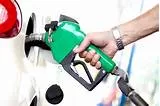
The Nigerian government has said it will introduce a new petrol consumption tax starting January 2026.
This means that Nigerians will pay a 5% levy — equivalent to N500 for every N10,000 spent on petrol.
The measure is designed to discourage fossil fuel use and encourage citizens to adopt cleaner energy sources. The tax will be collected at the point of purchase and will not apply to kerosene, cooking gas, Compressed Natural Gas (CNG), or other clean energy alternatives.
Government officials say the revenue will be channeled into climate change projects and renewable energy initiatives.
However, analysts warn the policy could worsen inflation, with transport costs expected to rise sharply. Critics also argue that the flat tax rate will disproportionately affect poorer households, who already bear the brunt of rising fuel prices.
While the government frames the levy as a step toward reducing Nigeria’s dependence on fossil fuels, many citizens fear the immediate economic strain it will place on daily life.
 Premium News
Premium News